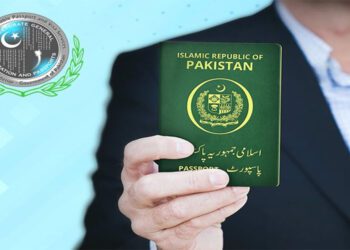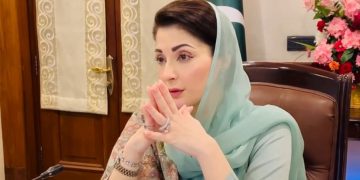Endorsing Donald Trump for a Nobel Peace Prize while Pakistan continues to suffer from the geopolitical aftershocks of U.S. betrayals — and Palestine from U.S.-backed genocide — is not just diplomatically tone-deaf; it borders on absurd. As global alliances shift, Pakistan must redefine its strategic calculus.
In a strange turn of diplomatic events, the Government of Pakistan reportedly endorsed the nomination of U.S. President Donald Trump for the Nobel Peace Prize — a move that has sparked disbelief, even ridicule, across diplomatic and policy circles. For a nation that has repeatedly been on the receiving end of American betrayals — most notably under Trump’s tenure — this endorsement feels less like a strategic maneuver and more like a national embarrassment.
Pakistan has historically tried to maintain a “balanced” foreign policy, cultivating relations with both Western powers and regional allies. But reality tells a different tale. Despite being a frontline ally of the United States during the Cold War and the Global War on Terror, Pakistan has more often found itself isolated and scapegoated rather than rewarded. The most glaring example of betrayal came when the Trump administration abruptly cut off military aid to Pakistan in 2018, accusing Islamabad of harboring terrorists, despite the fact that Pakistan had lost tens of thousands of citizens and soldiers fighting the very war America asked it to join.
Trump’s foreign policy was notoriously transactional. His administration cozied up to India under the strategic Indo-Pacific doctrine while cornering Pakistan diplomatically. His “America First” agenda left little space for nuanced partnerships, and Pakistan was often treated as a problematic afterthought rather than a sovereign partner. That the current government would entertain the notion of him being a “peace advocate” after presiding over escalated conflicts — from Iran to Palestine — is nothing short of a mockery of international diplomacy.
Can we easily forget the U.S. vetoing the UN Security Council resolutions on Palestine, accusing Pakistan of every notorious move by India, or absurd threats by the Israeli Prime Minister Benjamin Netanyahu, or the latest blame that Pakistan is working on ballistic missiles that can hit targets in the U.S.?
Today, the geopolitical chessboard is undergoing a significant transformation. China’s rapid emergence as an economic and technological giant has redefined global power equations. Russia, although economically constrained, is asserting itself militarily and politically, evident in its confrontation with NATO in Ukraine. Together, these two powers are forming a strategic axis, often joined by countries like Iran and even India in certain contexts, challenging the once uncontested Western dominance.
In contrast, the U.S.-led global order appears increasingly brittle. The Ukraine war has exposed cracks in NATO’s unified stance. Washington’s blind support for Israel, even in the face of brutal crackdowns in Gaza leading to heinous genocide, has triggered outrage across the Muslim world and beyond. Trump’s alignment with ultra-right, Islamophobic, and pro-Zionist lobbies further weakened whatever little trust Muslim-majority countries had in U.S. intentions. In this emerging multipolar world, strategic alignments must be recalibrated, not nostalgically clung to.
The first and foremost step for Pakistan is to stop relying on a country that has consistently prioritized its own short-term goals at Pakistan’s long-term expense. Trust, especially in international relations, should be based on shared interests and mutual respect — not on a cycle of aid, conditionality, and coercion.
A few thoughts instantly pop up while reconsidering Pakistan’s geopolitical options. The foremost one is to strengthen ties with emerging powers such as China, Russia, Türkiye, Iran, and the Central Asian republics. The China-Pakistan Economic Corridor (CPEC) is a good start but must not be limited to infrastructure. Defense cooperation, technology transfer, and regional diplomacy must be included in the fold.
Pakistan must enhance its self-reliance in defense and technology. An overdependence on Western military hardware and economic assistance leaves the country vulnerable. Strengthening indigenous defense production and cyber capabilities is imperative. Reviving SAARC or developing alternate platforms with like-minded neighbors in South Asia and proactive engagement in the strategic and economic regional forums shall lead to a strong South and Central Asian coalition that can act as a buffer against Western manipulations.
Instead of symbolic endorsements and appeasement tactics, Pakistan’s foreign policy should be issue-based, guided by long-term strategic interests. It must speak against violations of international law — including in Palestine and Kashmir or similar situations elsewhere — without fearing Western backlash. Pakistan has recently shown its resolve in the UNSC and other forums, and shall continue. Meanwhile, Pakistan needs a clearly articulated, non-aligned security doctrine that aligns with its geography, resources, and demographics — not a doctrine borrowed from U.S. strategic manuals.
The endorsement of Trump for a peace prize not only betrays the memory of our sacrifices during the War on Terror but also contradicts our stated position on global justice and peace. Let’s not forget, Trump was the man who tried to bully Pakistan into submission via Twitter threats, halted military aid, and used India as a regional counterbalance. If this is our idea of a peace champion, then we are indeed cracking a tragic joke — one that mocks our own sovereignty.
In an age of resurgent empires and realignments, Pakistan must wake up. Trust is not handed out; it is earned through experience, reflection, and wisdom. The lesson is clear: continued reliance on a transactional America, particularly under Trump or his ideological successors, is a risk we cannot afford. His tenacity to attack Iran yet again after face-saving Israel from Iran’s unexpectedly daring response in the 12-day war speaks volumes of Trump’s tendency to disrupt peace and development.
Instead of seeking validation from discredited global figures such as Trump, Pakistan should focus on cultivating mutual respect, regional stability, and self-reliance. The age of blind loyalty must end, and the age of pragmatic diplomacy must begin.


























